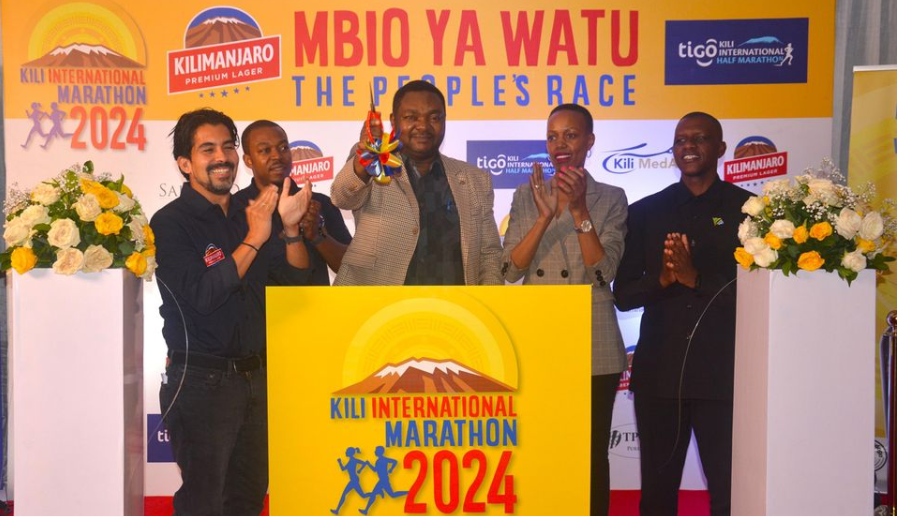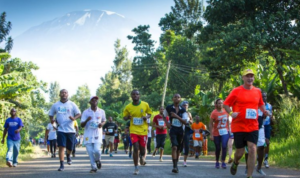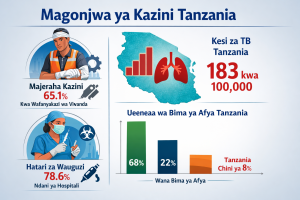
The Runner Ahead of You Should Always Be Tanzanian, Athletics Tanzania Cautions Race Invitees
By Muoki Musila
Slowing Down World Beaters
Earlier in January, Athletics Tanzania through its secretary-general issued a directive that would see only three athletes per event and gender from one country win prize money. This piles on Tanzania’s continued trend of anti-competitive regulations and regional integration limiting measures with the fourth compatriot only entitled to a position claim. With the Kilimanjaro Marathon slated for the 25th of February this year, this directive reflects a narrow-minded approach that not only undermines the principles of fair competition but also bars sports tourism.
Recently, Tanzania barred foreigners from working in its microfinance sector citing the need to provide employment opportunities for the local professionals. These anti-competitive tendencies run counter to the spirit of regional integration and the principles of free trade advocated by the African Continental Free Trade Area (AfCFTA) and the East African Community (EAC). The concerns for policymakers are therefore on whether Tanzania’s industry will aid in the development of the athletics sport in the country and at what costs relative to neighboring running nations.
Unnecessary Bureaucracies
The decision to limit the number of foreign elite athletes eligible for prize money in Tanzanian road races is not just regressive; it’s outright ludicrous. By restricting the potential earnings of athletes based solely on their nationality, Athletics Tanzania is sending a clear message that talent and hard work are secondary to arbitrary bureaucratic constraints. This policy not only discourages international participation but also tarnishes the reputation of the Kilimanjaro Marathon as a truly competitive and inclusive event on the global stage.

The new requirement follows a 2021 directive that saw Athletics Tanzania limit the number of foreign athletes, particularly those of Kenyan origin, participating in the Kilimanjaro Marathon. This further limited the mobility of athlete laborers into Tanzania by eliminating free participation in invitational races and requiring additional ‘clearance certificates. In contrast, this is a violation of the East African Community Competition Act 2006 which mandates the promotion and protection of fair trade, a policy of which Tanzania is a signatory.
Regional Integration Efforts
On regional integration efforts championed by organizations like the AfCFTA and the EAC, Tanzania’s stance on athletic competition is not just outdated but detrimental to the overarching goal of fostering unity and cooperation among African nations. East African nations in particular are world beaters in athletic activities propping the sport as one of the purest forms of sporting activities transcending borders, languages, and cultures.
“By fostering an environment of healthy competition and cooperation, Tanzania can harness the collective potential of athletes from across the continent to elevate the standard of its sporting events and inspire future generations of athletes to aim for excellence on the global stage.”
Instead of embracing the principles of free trade and open competition, Athletics Tanzania has chosen to erect barriers that stifle the potential for cross-border collaboration and mutual growth. A sport keen on demonstrating the human capacity for perseverance and achievement ought to embrace open competition to encourage talent development and growth in the region. The Kilimanjaro Marathon will see the first ten athletes and two elderly competitors above forty years receive monetary awards.
At a time when supranational organizations such as AfCFTA are increasingly interconnecting the continent where barriers to trade and movement are gradually being dismantled in favor of greater cooperation and shared prosperity, Athletics Tanzania’s decisions reek of protectionism and isolationism. This will not only limit the exposure of Tanzanian athletes to the world’s elite but also reduce the attractiveness of sporting activities in the country. Tanzania can equally expect retaliatory measures from its counterparts further impacting regional integration efforts and the essence of the sport in the region.
By prioritizing the interests of domestic athletes over the principles of fair play and open competition, Athletics Tanzania risks alienating itself from the global athletic community. While Tanzania seeks to encourage local participation in domestic races, this move will inhibit the development of its athletes through exposure to international competition. Notably, this is a counter-productive measure that Athletics Tanzania needs to reconsider.
Moreover, the requirement for foreign athletes to obtain prior authorization from their national federations, ostensibly to ensure compliance with race rules, smacks of unnecessary bureaucracy and micromanagement. While it is understandable to uphold the integrity of sporting events by enforcing rules and regulations, imposing additional hurdles on foreign athletes only serves to discourage their participation and perpetuate a culture of suspicion and mistrust.
Embracing Competition
Tanzania’s decision to limit the number of foreign elite athletes eligible for prize money not only undermines the competitive nature of the Kilimanjaro Marathon but also sets a dangerous precedent for other sporting events in the region. If left unchecked, such protectionist measures could create a domino effect, with other countries following suit and erecting their barriers to international competition, ultimately leading to a fragmented and insular sporting landscape in the region and beyond.
Instead of viewing foreign athletes as threats to domestic talent, Tanzania should embrace them as catalysts for growth and development within the local athletic community. By fostering an environment of healthy competition and cooperation, Tanzania can harness the collective potential of athletes from across the continent to elevate the standard of its sporting events and inspire future generations of athletes to aim for excellence on the global stage.
Tanzania’s restrictive approach to athletic competition not only flies in the face of regional integration efforts but also undermines the principles of fair play and open competition that lie at the heart of sport. If Tanzania truly wishes to position itself as a leader in African athletics, it must abandon its protectionist mindset and embrace the spirit of unity and cooperation that defines the modern sporting landscape. Only then can the Kilimanjaro Marathon, and indeed all sporting events in Tanzania, realize their full potential as platforms for excellence, inclusion, and shared achievement.
Muoki Musila is an Kenyan based economist. These are the writer’s own opinions and do not necessarily reflect the viewpoints of Liberty Sparks. Do you want to publish in this space? Contact our editors at [email protected] for further clarification.



